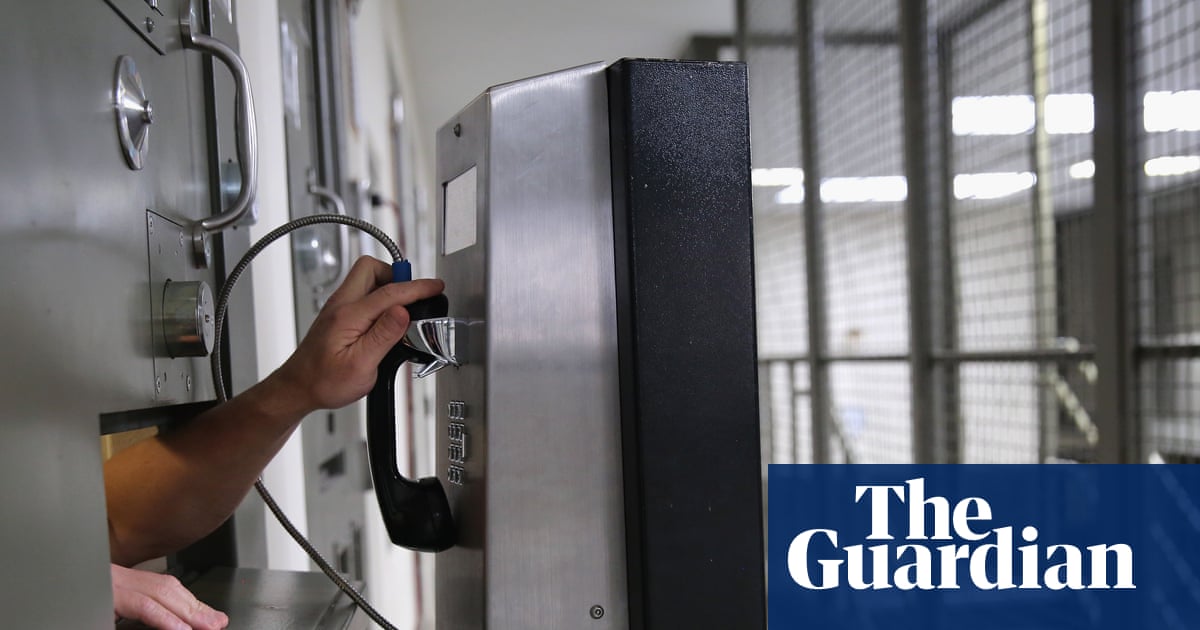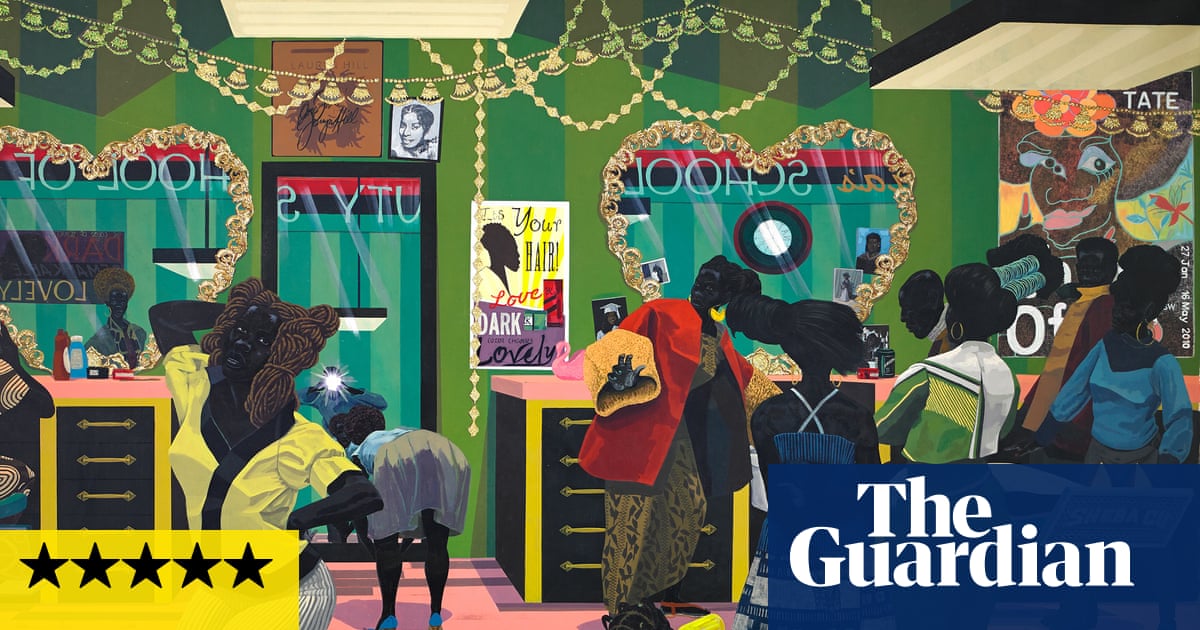A vulnerable teenage girl who died five months after terrorism charges against her were dropped was “highly affected” by her arrest but failures in her case were “not systemic”, a coroner has concluded.
Rhianan Rudd died at a children’s home aged 16 in May 2022, as the result of a self-inflicted act, said the chief coroner of England and Wales, Alexia Durran.
Delivering a narrative verdict at Chesterfield town hall on Monday, Durran said: “In the circumstances I do not consider I should make a prevention of future deaths report.
“I’m not satisfied, on the balance of probabilities, Rhianan intended to take her own life. Rhianan’s death … was the result of a self-inflicted act but it is not possible to ascertain her intention.
“Rhianan was known, to family and professionals, to be vulnerable, to have autistic traits and have a history of self-harm.”
The coroner added: “I find she was highly affected by her arrest and was concerned about being sent to prison.”
It was not known what Rhianan was told by her legal team when the charges were dropped but this may have had a “psychological impact” on her, the coroner said.
When Rhianan was arrested in October 2020, she was so small that no handcuffs would fit on her wrists. Aged 15, she became the youngest girl ever to be charged with terror offences in the UK after being groomed online by an American “neo-Nazi”.
Less than 18 months later, she was found dead at the Bluebell House residential home in Nottinghamshire.
Once a “bubbly, kind and loving” teenager, who loved animals and liked to bake, Rhianan had gradually become quiet and withdrawn. At first she told her mother that it was the coronavirus lockdown that had led to her change in behaviour, but in reality the teenager was being exploited.
Rhianan remained under police investigation for more than two years before the charges were dropped, in light of evidence that she had been groomed and sexually exploited. Five months later, she took her own life in a children’s home.
She had remained under investigation by MI5 until the day she died.
Rhianan had been speaking online to Chris Cook, an Ohio-based 28-year-old far-right extremist. Cook, who was later convicted of being part of a terrorist plot, had messaged the then 14-year-old on WhatsApp, sending her links to “racially motivated, violent extremist books”.
Evidence also showed she had been influenced by Dax Mallaburn, her mother Emily Carter’s former boyfriend, and a member of the Arizona Aryan Brotherhood, a neo-Nazi group.
Carter knew her daughter had been radicalised; she had even referred her to the government’s de-radicalisation programme, Prevent, in September 2020, after Rhianan came downstairs and told her she had downloaded a bomb-making manual.
“It was really scary. I knew it had to be done, but it doesn’t stop it being scary,” Carter said. “I was hoping that it was just going to take her two or three times a week to work on her mind, unpick her head, and turn her back into Rhianan, not end up with all these police officers turning up arresting her and pulling my house apart. You don’t expect that at all.”
At the time of her arrest, Rhianan had a shrine to Adolf Hitler in her bedroom, and described herself as a fascist. She had sent messages on WhatsApp saying she “wants to kill someone in the school or blow up a Jewish place of worship” and she “does not care who she kills and nothing matters any more”.
The inquest heard police had initially refrained from arresting the teenager as they thought to do so may “risk some impact on her mental health” and “could possibly lead to further self-harm and suicide attempts”.
But in October 2020, a day after she had been treated in hospital after carving an image of a swastika into her forehead, 19 police officers and three detectives turned up at the family home in Bolsover, Derbyshire, to take her into custody.
“They were going to put her in handcuffs, but the handcuffs didn’t go small enough. They just fell off her hands,” Carter said. “Even on the smallest ones, they just fell off her hands. So they just held her arms and just walked around. That’s how small she was.”
She added: “She was 5ft one, weighed seven stone,” she added. “And she was 15 years old when she said it, she was tiny. I don’t know what people thought she could do, but I don’t believe that she was ever a threat. It was just what people would put in her head. Brainwashed her, basically.”

When she was arrested, Rhianan’s engagement with Prevent stopped.
During police interviews, Rhianan described being coerced and groomed, telling officers she had sent sexually explicit images of herself to Cook.
However, a referral order was only made to the Home Office’s national referral mechanism (NRM), which identifies potential victims of human trafficking and modern slavery, in August 2021.
“She was a vulnerable child that was groomed,” Carter said. “The NRM should have been done at the very beginning, not 10 months into it, and it should have all been put together properly, before you even sit them down at a table and start questioning them.
“She was a child, a vulnerable child, a child with mental health issues. She should have been treated as a victim more than anything.”
Durran found there were multiple failures in Rhianan’s investigation and care.
She said “the information available constituted a sufficient basis to classify Rhianan as a victim of modern slavery” during her indoctrination into far-right beliefs, and that she should have been referred to the NRM sooner.
She added that “it is arguable that Rhianan not being referred until 2021 is evidence of the systems failure to provide adequate care for her”, but said it would be difficult to link these failings to her eventual death and that her arrest was “reasonable and proportionate in the circumstances”.
The coroner’s conclusion provided some vindication for Carter, who had always believed her daughter’s death was preventable. “One of the things I’ve said all the way along the line, I’ve admitted it to court, I’m not perfect,” she said.
“I’ve made mistakes, and I want the organisations to put their hands up and admit they’ve made mistakes and to rectify their mistakes so it doesn’t happen again.
“And then that way everybody can be happy, except me, because I’ve already lost my daughter.”
-
In the UK and Ireland, Samaritans can be contacted on freephone 116 123, or email [email protected] or [email protected]. In the US, you can call or text the National Suicide Prevention Lifeline on 988, chat on 988lifeline.org, or text HOME to 741741 to connect with a crisis counselor. In Australia, the crisis support service Lifeline is 13 11 14. Other international helplines can be found at befrienders.org

 3 months ago
36
3 months ago
36

















































